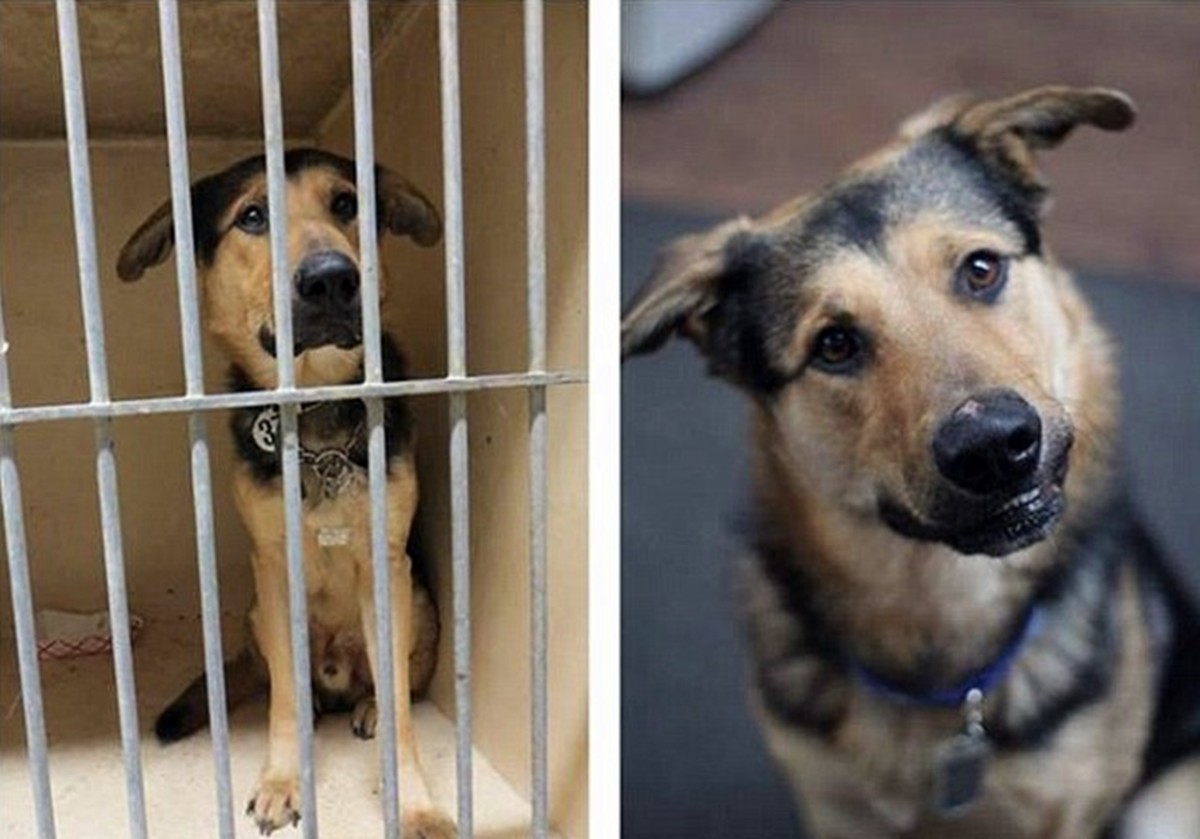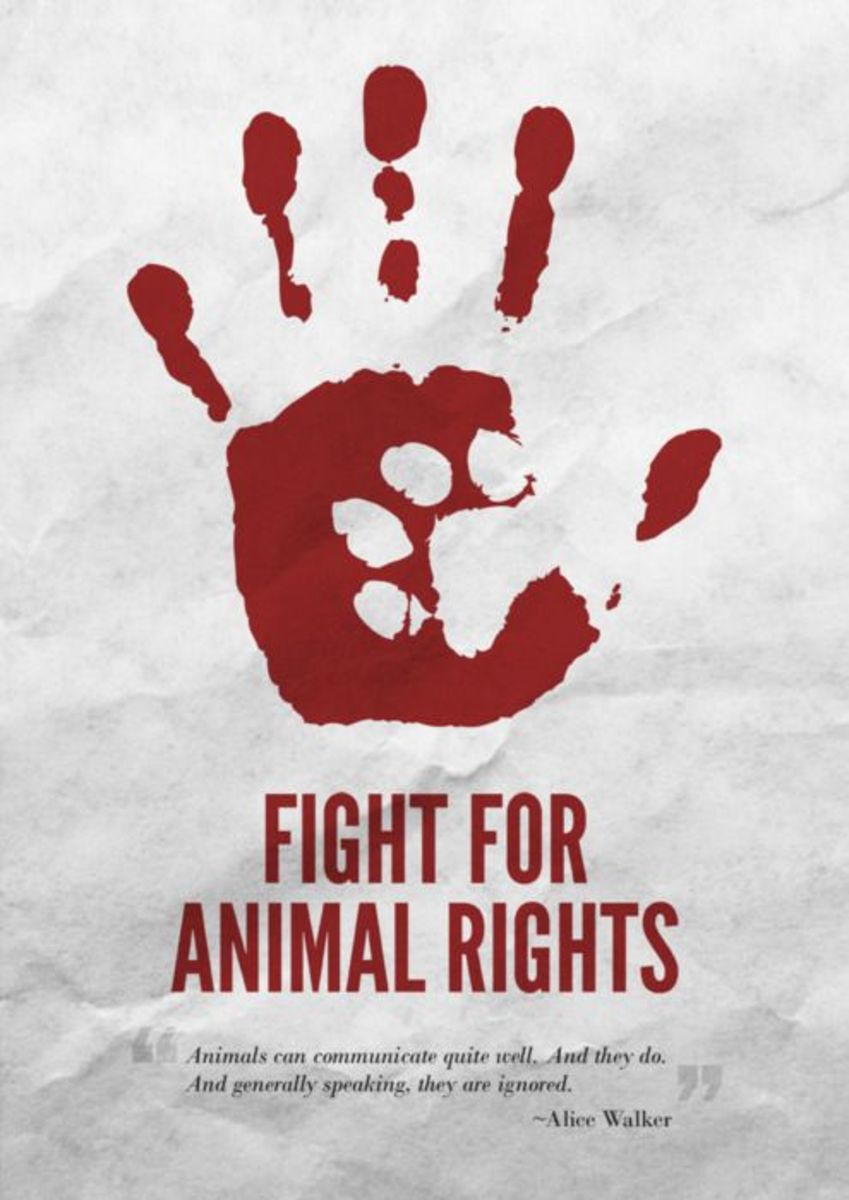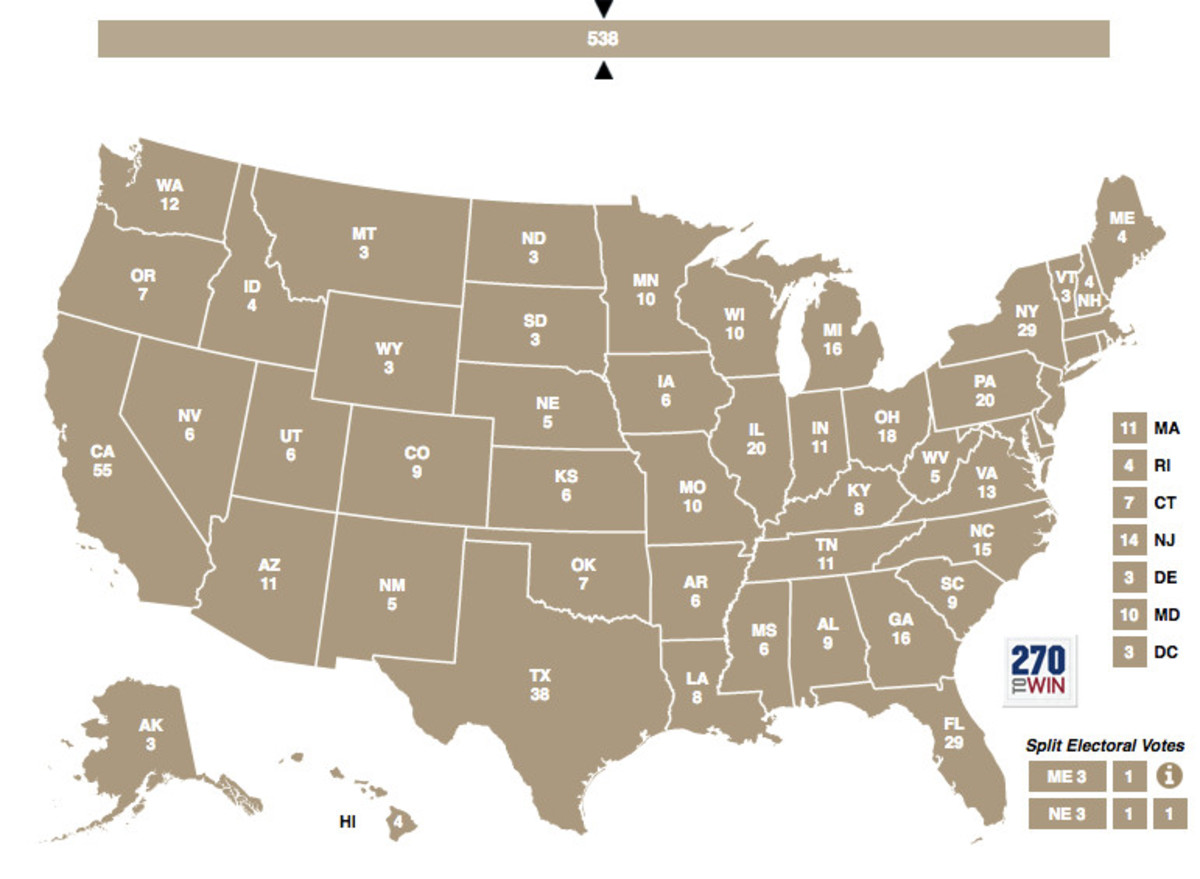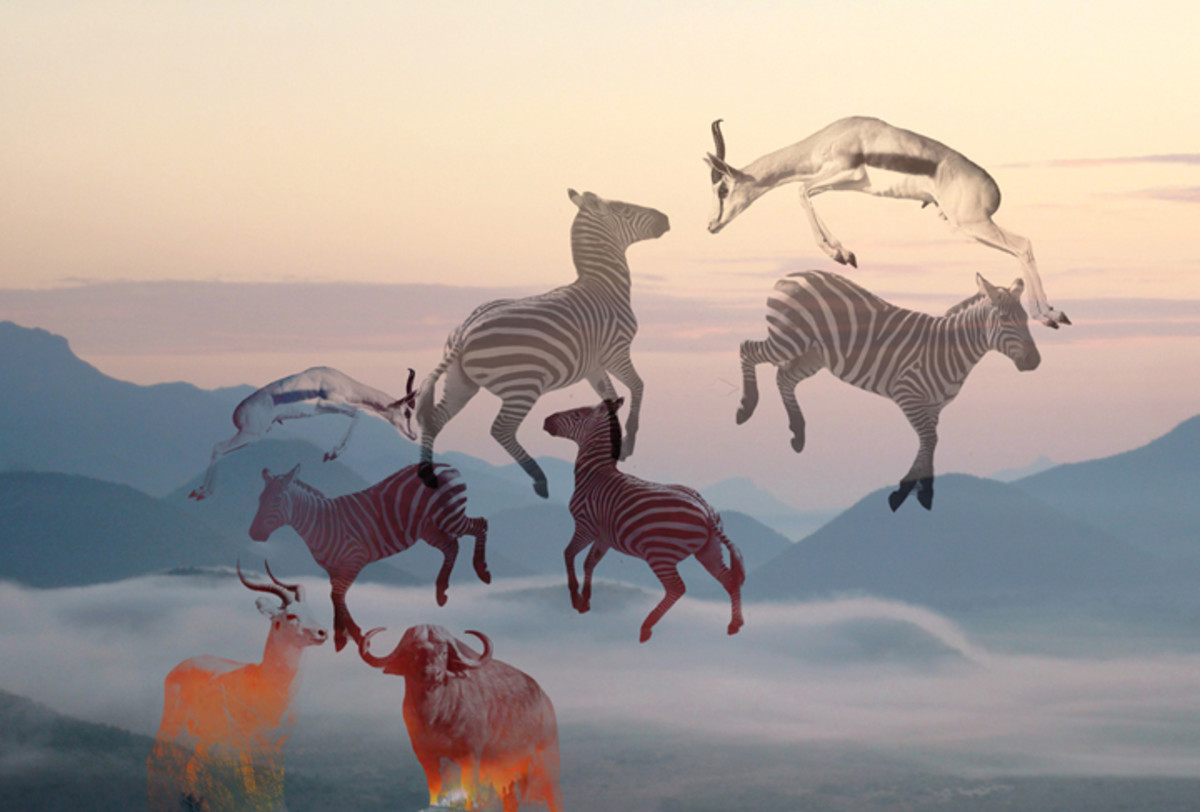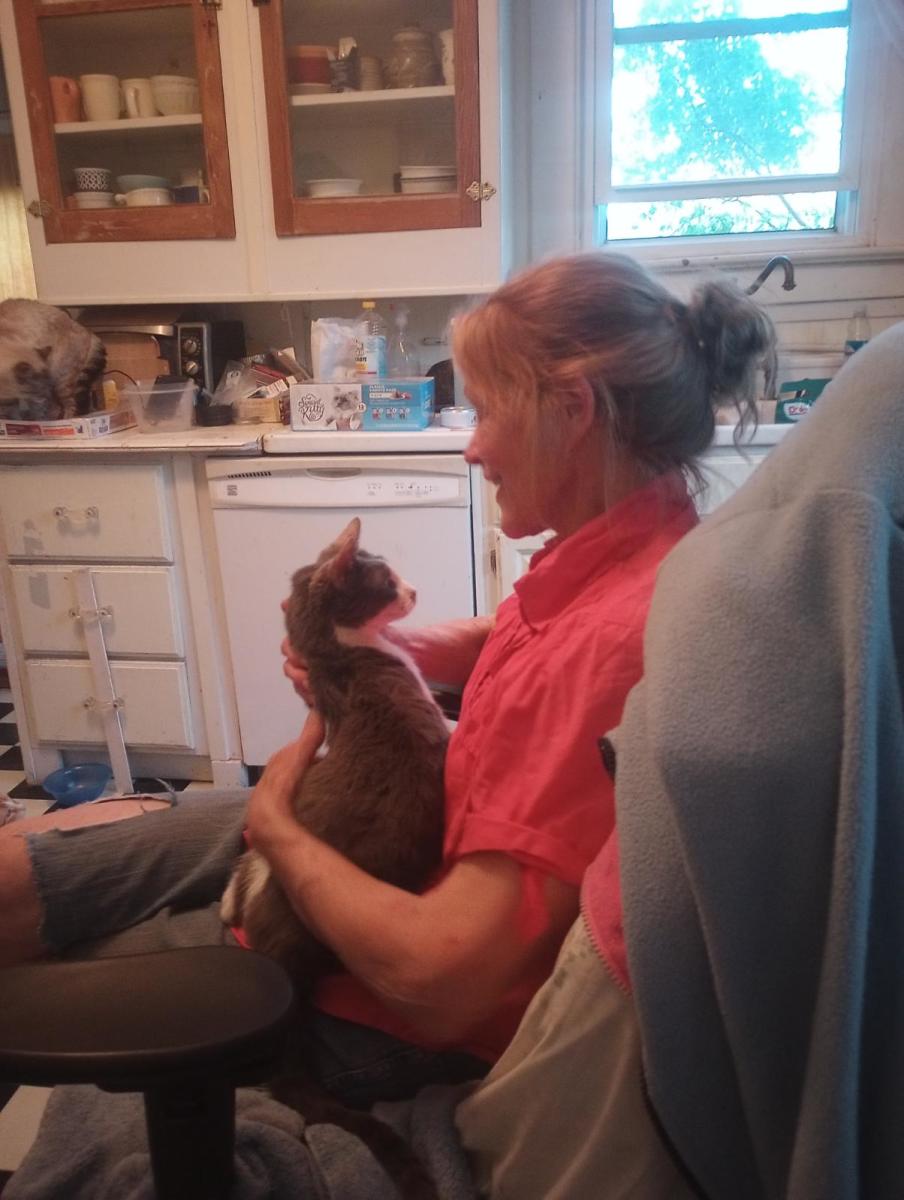The 10 Most Common Arguments against Vegetarianism or Veganism and My Response to Them: Part Four
This is the fourth part of a short series of articles I'm writing about the most common arguments meat eaters will level against veggies (I'll use the term 'veggie' from here on to describe vegetarians and vegans). Part One can be found here, part two here, and part three here.
In short I hope to debunk some common myths and concerns about going veggie, and disprove some of the most common (and perhaps some of the less common) arguments against vegetarianism and veganism.
7. The Mass Slaughter Argument
This is the argument which states that by all of us going veggie we would no longer have a use for farm animals and they would all starve and die or we would have to put them all down. Further, if we all went veggie, then those farm animals would likely die out and become extinct and this is even worse than the current situation. This is because they've been bred to the point where they probably wouldn't be able to survive in the wild. Therefore by going veggie you will bring about a far greater evil than by continuing to eat meat.
It is interesting that a similar argument was used by slave owners 200 years ago. 'If we set all the slaves free, they'll be homeless, and they'll starve, become violent and commit crimes - setting them free therefore is a terrible idea!' It seems faintly ridiculous now, but the old 'two wrongs make a right' argument is fairly common, especially when those people making this argument benefit from the current arrangement.
To begin with, I'd respond by saying that most veggies are aware that the shift from meat-eating to a veggie diet, if it happens for the entire population, will be a gradual one. Less and less animals will be demanded, so less will be bred, and their populations will slowly diminish. We won't need to commit some kind of mass slaughter as some would like to suggest (though you could point out that mass slaughter occurs every day so it wouldn't be a drastic change in affairs).
Further there is the idea that most farm animals wouldn't be able to cope in the wild. But have you ever come up against a bull, or a ram? They can take care of themselves. If we are worried that they wouldn't be able to survive in the wild then it is incumbent on us to compensate them, perhaps by providing a nature reserve for them where they will be relatively protected. When you have committed a wrong on someone, you compensate them, you don't try to justify further wrongs.
Some have suggested that we could use selective breeding to get farm animals to the point where they can survive in the wild again. I'm not convinced of this, but at least it is a positive suggestion rather than trying to justify the current situation. In fact the evidence is that it doesn't take long for farm animals to become feral when left in the wild. And I'm not sure that in the grand scale of evolution we will have made that big a difference to their genetics anyway.
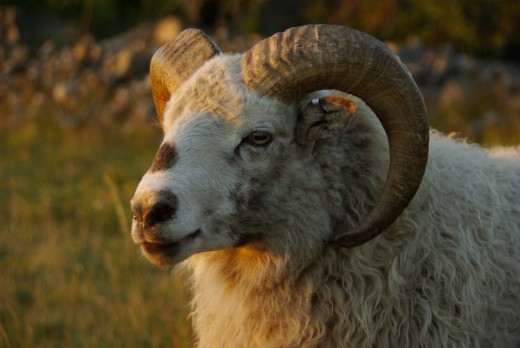
8. The Subjective Argument
At some point you will come across someone who says that vegetarianism or veganism is a personal decision, and that you shouldn't try to convert others to your lifestyle. Some will say that all our ethical decisions are subjective anyway (the philosophy undergrads love this one), that is, different for everyone, and therefore we should all just do what fits with our own consciences. You make your choices with regard to food, and I'll make mine, and we'll all get along.
When I first became a vegetarian, I was conscious that I didn't want to be preachy about it. I decided that I would only talk about vegetarianism when people asked. I didn't want to be one of 'those' vegetarians or vegans (when I think about it, I don't think I've ever met a preachy veggie but there you go). The thing is, it's just not that easy.
The first thing I could talk about here is my friend who thinks it is acceptable to cheat on his girlfriend because that is okay with his conscience. I want to tell him he shouldn't cheat on his girlfriend, that that is unfair on her, and sometimes people need a talking to! But according to the above argument, I should let him carry on.
If you knew that there was domestic abuse going on next door would you do nothing about it? Or let's say you see a child being beaten up in the street and you could intervene or call the police, what would you do? When I consider vegetarianism/veganism, this is the way I feel. And, though I've never been an activist or broken the law myself, I can fully understand those who resort to that having seen one too many abusive animal videos. Seriously, take a lot at this video, and tell me you don't feel the need to get involved to prevent what is going on.
The thing is, animal abuse like this is not a rare occurrence. It's usually only from illegal secret filming that these things come to light. There is a reason why most livestock farmers won't let you see what goes on behind the scenes. The farming industry is a competitive industry, and in any competitive industry businesses have to keep costs as low as possible or else go out of business. This is why animals are seen as products, and often become nuisances, and when you stop seeing an animal as a product and not a being in itself, with it's own hopes, emotions, and fears, then abuse is only one step away. As Kant would say, we begin to see animals as a means to an end, not as an end in themselves. Farms are certainly not the way you see them in a children's book.
Further, the people who slaughter animals on a daily basis will become hardened to what they do. And once they're hardened to one form of violence, seeing the animal as a product only, abuse isn't far away. We see this in the secretly filmed slaughterhouses last year, where of 7 slaughterhouse filmed, 6 of them were regularly abusing animals. Kicking, electrocution, prodding with pitchforks, punching... well watch the video yourself.
On a related note, it has always seemed strange and inconsistent to me that when we kill animals painlessly against its will we call this 'humane' but if you kill a human painlessly against its will it's called 'cold-blooded murder'.
Still, I keep most of this to myself unless people ask. The truth is, meat eating is so ingrained in our culture, where people are brought up to eat it, their parents, their peers, and, respected people all eat it, that it becomes strange to question it. People might wonder sometimes how genocide happens, how honest good people can possibly think it's okay to murder another human being, but we only have to look around us to see how convention and popular opinion guide our moral practices.
Sometimes in the past I've been on an ethical forum and started a thread on the subject of animal rights, or I've posted a comment on an article about vegetarianism/veganism. And people complain that I'm being preachy! Honestly, if you're on an ethical forum, or reading an article on an ethical issue, then you should be prepared to hear other ethical viewpoints.
Philosophy undergraduates will be keen to point out that all ethics is subjective, and may even alert you to Hume's is and ought problem. That is, how do we go from the way things are, to the way things ought to be? Let me state straight away that Hume is one of my favourite philosophers, and that I agree this is a legitimate problem for ethics. All I will say here is that it is basically impossible to accept the conclusion, that we therefore have no objective morals, even though that may be the right conclusion, because we still have to live by some ethical rules. The best thing we can hope for then is to at least be consistent in our ethical views, and it turns out that going veggie is the most consistent ethical viewpoint.
David Hume, 1711-1776

For the final part of this series, click here!

